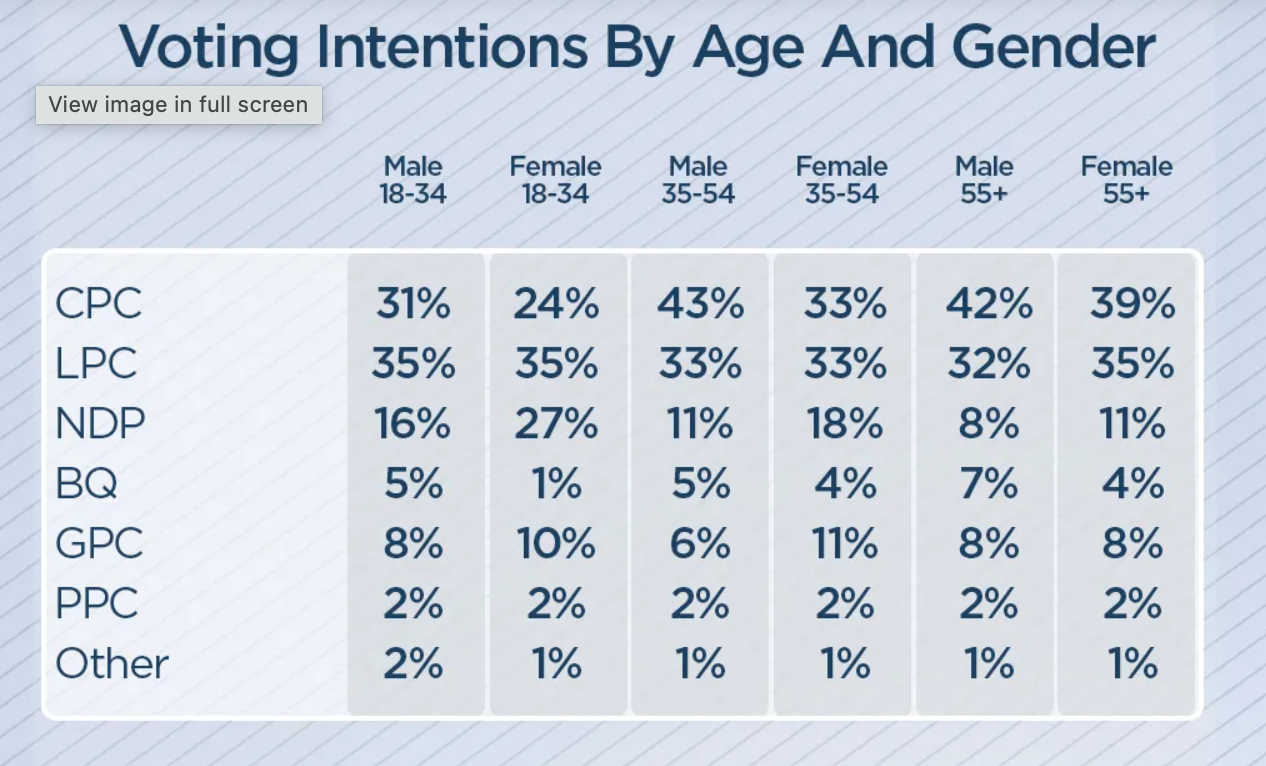has there been research done on the political alignment of the people
in this age group, that could validate or contradict the above
argument?
Yes. The argument is that:
they will vote for economically socialist and
big-government/authoritarian policies that the left supports.
This is basically true, as shown below. It would help the NDP and would hurt the Tories.
But, the reasons suggested for their political views is speculative at best and are not necessarily correct. The theory given is not a widely accepted hypothesis about why people tend to favor one political party over another. Indeed, for the most part, young people tend to follow the lead of their parents, all other things being equal:
the most common and influential source of election information among
young people was their families. In addition to sharing news and
political information, families can include their children in
political discussions, promote engagement, and teach and model voting
habits. The causal link can go both ways: research has demonstrated
that ideologies and habits of political engagement can be transferred
to parents from their children as well.
According to the source at the same link, when children do deviate in partisan affiliation from their parents, this most often happens as a result of leaving home and attending college, something that voters aged 16-17 have generally not done.
Canadians aged 16-17 are less likely to identify with a political party than any older age group:
The youngest Canadians identify less with political parties compared
with older groups of Canadians, which could be partly related to their
more limited experience with politics. While close to 80% of Canadians
aged 35 years or older report identifying with a federal political
party, less than 70% of those aged 18–22 and less than 60% of those
aged 16–17 say they identify with a federal political party. Among
those reporting a partisan identity, those aged 16–17 report weaker
partisan attachment compared with the three other age groups.
This said, the political party leanings of younger voters are different from those of older voters in Canada and it is reasonably to expect that voters aged 16-17 would follow these trends:

The New Democratic Party (NDP) of Canada, in particular, which leans left, has much stronger support among young people than among Canadians as a whole, while the Conservative Party of Canada (CPC), which unsurprisingly leans right politically, has the weakest support among younger voters.
Support for four other major political parties in Canada, and for other minor political parties, is less clearly related to a voter's age.
